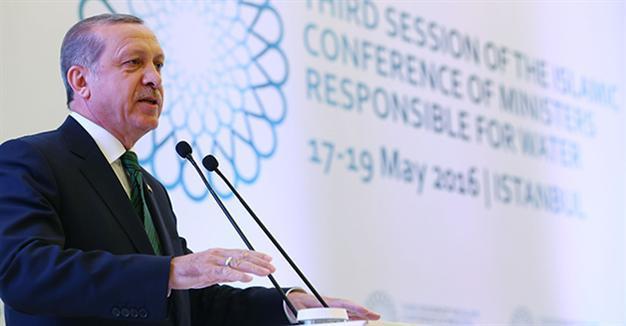Turkish Lira falls against dollar after Erdoğan adviser’s rate comments
ISTANBUL - Reuters

The U.S. dollar increased against the Turkish Lira to 2.9850 after Bülent Gedikli, a top adviser of Turkish President Recep Tayyip Erdoğan, said the Central Bank should make more rate cuts on May 18.
The lira already started the day weaker against the dollar due to concerns about a possible earlier-than-expected rate hikes by the U.S. Federal Reserve (Fed).
In a meeting with the Economy Reporters Association, Gedikli said he forecast a more proactive tendency from the Turkish Central Bank in the upcoming period.
“The Central Bank should make more and faster rate cuts, rather than 25 percentage points of cuts,” he noted.
“Why does President Erdoğan say that the rates must be cut? He says so because he sees that the global economy is running into deflation. Another reason behind this is that he wants to say ‘trust in your country,’” added Gedikli.
As expected, the Central Bank left its benchmark repo rate unchanged at 7.5 percent and instead cut the upper band of its interest rate corridor by an expected 50 basis points, to 10 percent in April. The bank cut the same rate by 25 points in March for the first time in 13 months.
The dollar-lira parity started the week at over 2.98 for the first time since Feb. 29 due to domestic political developments and global selling tendency, rebounding to around 2.96 late May 17. While the parity was around 2.9790 early May 18, it saw 2.9850 after Gedikli’s comments before rebounding to 2.9825 at noon.
Gedikli also noted that the problems in the Turkish economy in the past were due to incoherent work with the Central Bank.
“We do not see a need to change in the Central Bank Law, but we could if we find it necessary,” he added.
Gedikli also said there was no great relation between rates and savings, adding that the rate cut would result in under-the-mattress savings entering the economy.
 The U.S. dollar increased against the Turkish Lira to 2.9850 after Bülent Gedikli, a top adviser of Turkish President Recep Tayyip Erdoğan, said the Central Bank should make more rate cuts on May 18.
The U.S. dollar increased against the Turkish Lira to 2.9850 after Bülent Gedikli, a top adviser of Turkish President Recep Tayyip Erdoğan, said the Central Bank should make more rate cuts on May 18.